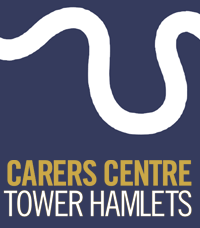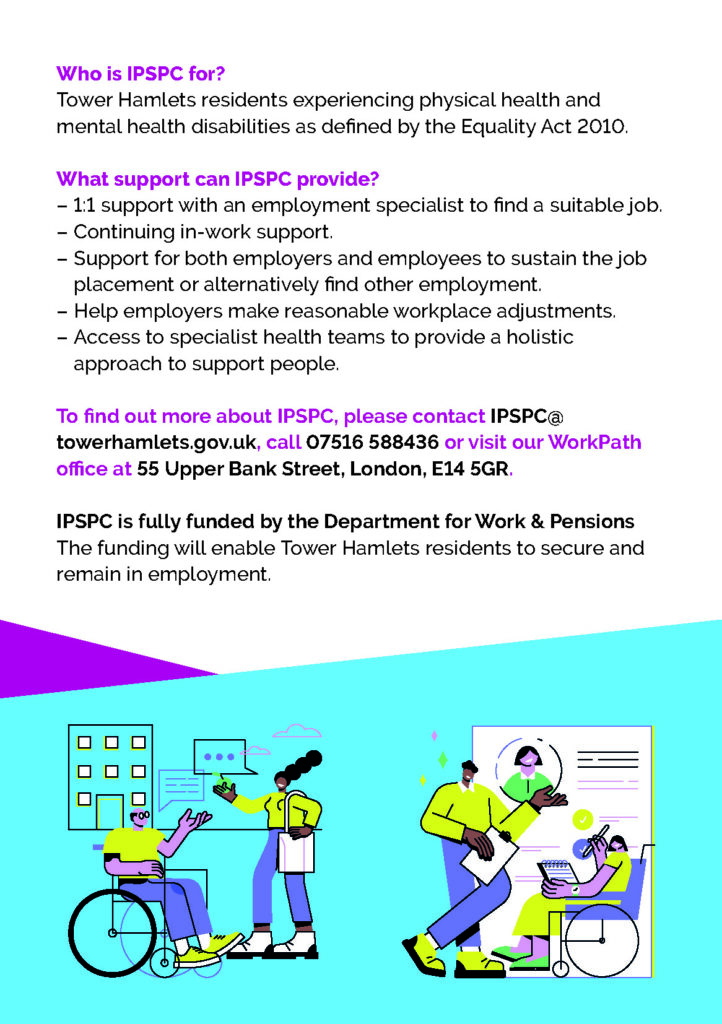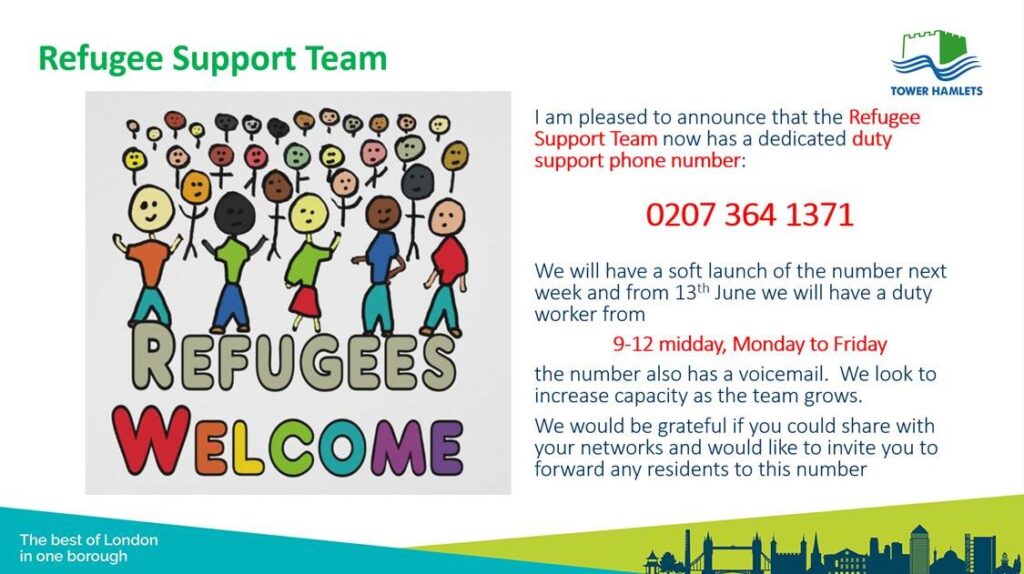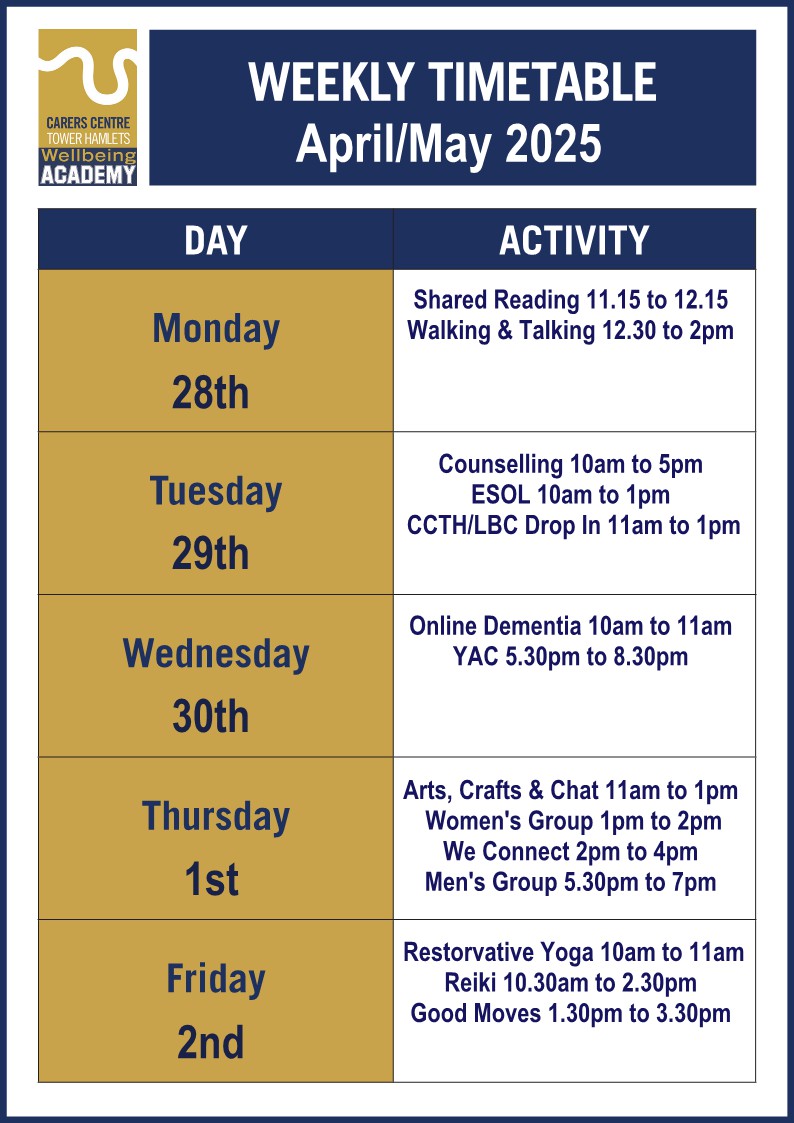Mental Health Awareness Week
May 10th, 2024
Hello Everyone – Next week is Mental Health Awareness Week?
Next week is Mental Health Awareness Week and I wanted to highlight this to you all as it is so important that we all look after ourselves, as this enables us to have the energy for our own lives and the people we care for. We can’t support others when we are tired, feeling depressed, isolated and lonely and feeling unable to exercise such as walking or go to the gym.
The awareness week this year is that movement can aid better emotional and mental wellbeing. With this is mind I wanted to encourage the carers going on the retreat to get out and have a lovely walk in the surrounding and beautiful countryside by the retreat, meditate and have some fun with other carers.
To the carers staying at home why not meet friends or family and get out and have a walk, why not take on an exercise class or just walk to the Carers Centre for one of next week’s activities and connect with other carers. We like seeing new faces as well as our wonderful regulars.
Sharron one of our Carer Champions is running the Shared Reading followed by the Ramble for Health on Monday 20th May from 11.15am so, why not do something new and join this excellent group and they are planning on walking over Tower Bridge to explore the south side of the Thames.
- less tension, stress and mental fatigue.
- a natural energy boost.
- a sense of achievement.
- more focus and motivation.
- feeling less angry or frustrated.
- a healthy appetite.
- having fun.



Shared Reading then followed by Creative Writing – Monday 13th May from 11.15am to 2pm
Shared reading is a popular group where carers are read a story and they then have the chance to debate the characters, storylines and how the story makes them feel. So, come along and have a little mental respite.
The Creative Writing group which follows, allows carers to write their own short story, each session has a different theme and you are able to explore your creative side.
Open University Study Group – Wednesday 15th May – 11am to 1pm
Why not come and have a chat with Tony and plan your learning journey. Do you want to a learn a hobby, language or do something for fun, learn topics to help you with your caring role or back into employment, career advancement to choice is yours
Also, it would be ,lovely to see carers who have started courses and just have a check in as you might need some further support.
Arts, Crafts & Conversation – every Thursday from 11am to 1pm
come and learn a new craft like sewing, knitting and much much more but a great part of the experience is meeting other carers where you can have a good long natter



Next Week’s Activities – check out https://ccth.org.uk/calendar/

please contact and click her christine@ccth.org.uk to book your place
Health Influencer Training for Carers

Purpose of Training: Provides knowledge and skills to improve own lifestyle and also to influence others to adapt healthier more active lifestyle. This really works if you care for someone with a mental health issues but is open to all carers.
we are seeking 6 to 8 carers
Format of Training:
Can be face to face. Can be on-line. As part of this project we want to work with you to ensure the format is accessible to carers and provides the confidence and knowledge to apply the learning. Two options for how the content could be covered are shown below
Training Content:
Option 1: Blended Learning: Six on-line sessions lasting approximately 2 and a half hours. All participants would need access to a laptop or tablet rather than a phone as, in our experience, the learning experience is diminished, and the assessment is really tricky to undertake using a smartphone. Online means we can negotiate the hours to fit in with the groups’ needs re childcare, work, and other care needs and responsibilities. Tony has advised that it may be possible for people to make use of computers at the Carers Centre for on-line training.
With this option we would also bolt on a face-to-face practical physical activity day. This would run between 10.30 and 2.30 and would provide the skills and confidence to participate in exercise and help others participate as well. This would include learning and teaching some basic movements that can be done pretty much anywhere and with no, or minimal equipment. We could also look to include some time within this session for a recap or support on any elements of the on-line learning that people would like to go through face to face.
if interested please email tony@ccth.org.uk

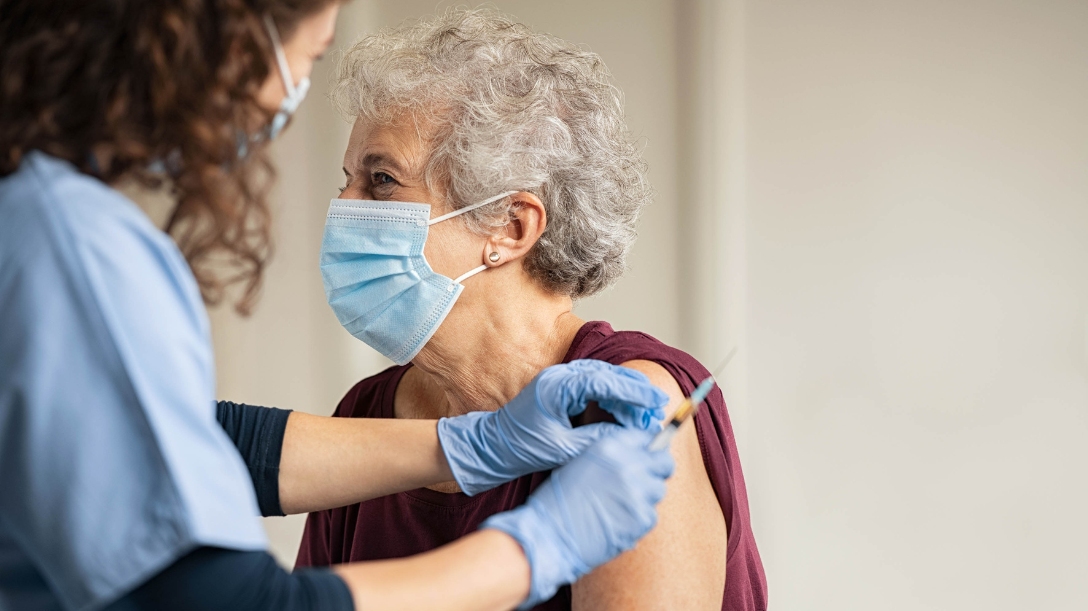
Covid-19 spring boosters
This spring, the NHS is offering the Covid-19 vaccine to those at highest risk from severe illness.
Protection against the virus fades over time, so all people aged 75 and above by 30 June 2023, or aged 5 and above with a weakened immune system, can now get an appointment.
Don’t get caught out. Make sure you and your loved ones get any extra protection you need this spring. Book online, call 119 or visit your local pharmacy.
Book here >
How to Advocate for Yourself at Doctor’s Visits, According to Doctors..

I read this and thought there is a lot of useful information for both a Carer looking after their health and being proactive and to use when advocating for loved one’s and cared for’s
With a limited amount of allotted time and a pressing health matter to discuss, a trip to the doctor’s office can sometimes feel like a high-stakes event. Even the most routine visits can leave you feeling dissatisfied if there’s a communication barrier, too many items on the agenda, or a personality clash.
Research shows that people who are able to vocalize their medical needs tend to be happier with their health care experiences and are even more likely to see improvements in symptoms and other important outcomes. So how can patients become better advocates for themselves and help take charge of their health in the process? We asked physicians for their best tips and strategic advice to help ensure your next doctor’s appointment goes as smoothly as possible.
Write down your concerns before the visit
Dr. Michael Albert, chief of internal medicine with Johns Hopkins Community Physicians in Odenton, Md., says he understands what patients can be up against when they go to see their doctor. First, there’s the inherent power balance between doctor and patient, which he says is slowly changing as medical schools begin to focus more on patient-centred care, but remains a problem. And he’s heard more than his share of stories over the years of physicians who appear to lack empathy when a patient raises concerns. “We know we need to do better as physicians,” Albert says.
Some of that disconnect comes down to time pressures, which can make physicians feel rushed to find a “fix” for their patients, rather than validating their feelings, Albert says.
To counteract that, he advises all patients to write a list of their concerns in order of urgency to help ensure that their voice is heard in the appointment. It doesn’t need to be an exhaustive narrative; in fact, being brief is key to keeping the appointment on track. But people who come prepared with a note highlighting main points they want to discuss often make better use of their limited time with the doctor. “Then we can really dig into the things that are most important,” he says.
By the time patients reach sub-specialist Dr. Kathryn Mills, they’ve usually already interacted with numerous physicians and other care providers. Mills, a gynaecologic oncologist and assistant professor of obstetrics and gynaecology at University of Chicago Medicine, says it can be confusing and overwhelming for patients to navigate the system, which is why she encourages them to write down their questions in advance.
“It is hard, when you get in that moment, to remember everything that you wanted to have addressed,” says Mills.
Send a portal message the day before
When a concise written list won’t suffice—such as when a patient wants to provide contextual information about a complicated injury—Albert says sending an electronic message through a patient portal the day before an appointment can help prepare the doctor.
Just don’t expect doctors to respond to complex questions through portal communication, Albert says. Those issues are best addressed in person.
Craft an “opening statement”
Doctors always face time constraints and are usually juggling multiple demands, Albert says. To help foster a strong relationship, he often advises patients to start their appointments with a brief opening statement that highlights their reason for coming in while acknowledging the doctor’s hectic schedule.
And the little things, such as showing up on time and making sure your paperwork is filled out, can go a long way toward building the provider-patient relationship, Mills says. When patients are on time and prepared, doctors are better able to stick to their schedule and spend the appointment focused on the issues at hand.
Google your symptoms—yes, really
Doctors rarely advise patients to fall down a rabbit hole online. But that doesn’t mean you shouldn’t do research. The best patient is the informed patient, according to Dr. Benita Petri-Pickstone, a family physician in Gahanna, Ohio and clinical assistant professor of family and community medicine at the Ohio State University Wexner Medical Center in Columbus. She says a vital aspect of self-advocacy is for patients to take an active role in their health, which means doing their research ahead of time so they can ask informed questions. Be proactive, raise any concerns with your doctor, and don’t hesitate to ask a multitude of questions, she says.
“The patient who tends to get the better care is usually one that is more vocal and asks informed questions about things based on what they’ve read and based on symptoms that they are feeling,”
Bring someone to your appointment
In situations where people may not be able to advocate for themselves, such as seniors who are experiencing a cognitive decline, Petri-Pickstone encourages them to bring along a trusted friend or family member. “I’m always open to having spouses and children come in with the patient to help give a good history so I can find out the total picture about what’s happening,” she says.
Don’t hesitate to find new care
Sometimes, the relationship between a doctor and patient just isn’t the right fit, Albert says. If someone has tried everything and the doctor is impossible to understand or just doesn’t listen, it might be time to seek another provider, he says. “They should select somebody who they feel more comfortable with,” he says.
The ideal doctor-patient relationship will vary depending on a person’s needs. But in general, people should be able to have a back-and-forth discussion with their physician and feel like their concerns are being heard and addressed, Albert says. If people feel like their doctor is going to listen, it becomes much easier for them to advocate for what they need.

We are looking for Tower Hamlets residents who would like to take part in our Storytelling Night & Open Mic at Tommy Flowers Community Pub, E14 on Wednesday 29th May, 7pm. Poster attached:)
We especially welcome people 50+ and those who have no or very little experience of performing. We will work with individuals to put together a 3-5 minute story on any subject they like.
Please feel free to direct anybody who is interested to me: margot@thepeoplespeak.org.uk

Making More Mischief:
Folk Costume in Britain.
9 April – 22 June
Making More Mischief: Folk Costume in Britain explores the vibrant world of folk costume and reflects the rich tapestry of people bringing them to life.
About the exhibition
Making More Mischief: Folk Costume in Britain is the highly anticipated sequel to Compton Verney’s 2023 exhibition, Making Mischief: Folk Costume in Britain, which was the first of its kind to explore the pivotal role of costume in folk customs thriving across Britain today and the rich tapestry of people bringing them to life.
Now, in collaboration with the Museum of British Folklore, and as part of the same project supported by The National Lottery Heritage Fund, LCF’s Making More Mischief builds on this narrative by zooming in with a London lens to further explore class, sexuality, ethnicity and identity to challenge preconceived ideas that seasonal folk cultures and customs need to be fixed, nostalgic or predominantly rural.
Traditions such as London’s carnivals, Doggett’s Coat and Badge Race, Swan Upping and Somali May Day traditions come together in Making More Mischief unified through the shared values of folk dress rooted in identity, non-conformity and subversiveness. Full outfits will be displayed across LCF’s three floors of public showcasing areas alongside many voices of the wearers and/or makers as written or oral testimonies. These communicate the deeply personal individual and community expressions of lives lived and desires, which permeate all folk culture.
Making More Mischief is generously supported by The National Lottery Heritage Fund and led by curators Simon Costin and Mellany Robinson of the Museum of British Folklore and London College of Fashion’s Amy de la Haye. Featuring commissions by NUMBI Arts and PXSSY PALACE, in close collaboration with Dr. Leila Nassereldein and Mirren Kessling, LCF’s cultural producers.
Visitor information
9 April – 22 June 2024
Opening times: Tuesday – Saturday, 10am to 5pm
Free admission.
Location: LCF East Bank, 105 Carpenter’s Road
London E20 2AR
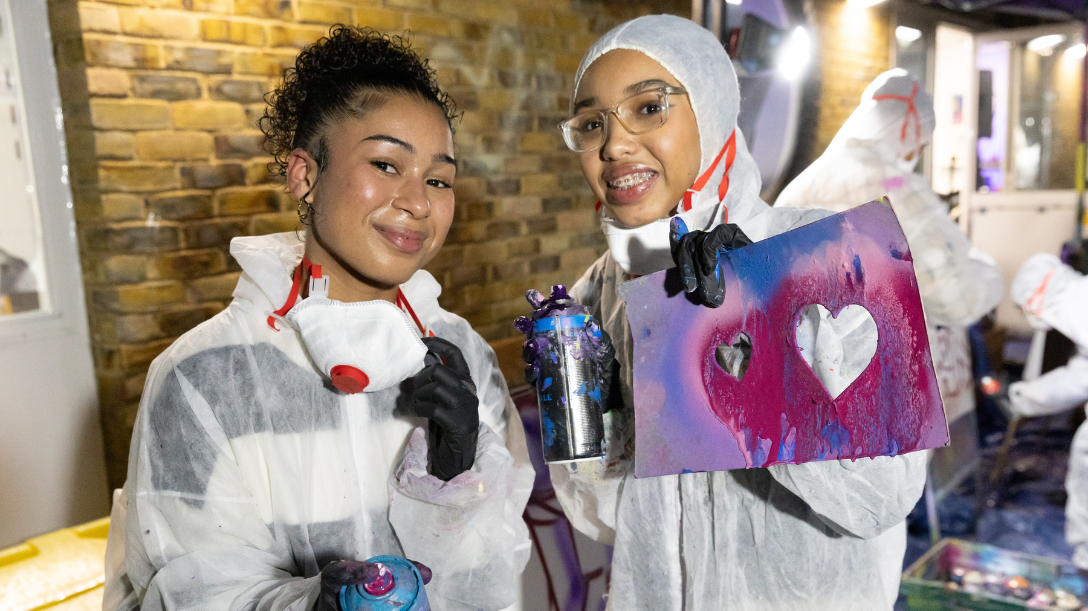
Free activities for young people – April to June 2024
Young Tower Hamlets offer a variety of fun and free activities across youth centres for young people aged 11 to 19 or up to 25 with SEND.
We have lots of sessions on offer, including: Cooking, VR, multi-sports, girls only sessions, beauty parlour, podcasting, art, support and advice. We also regularly plan trips out – in the past these have included: Cinema, Flip Out (trampoline park), Van Gogh Immersive VR experience, rock-climbing, canoeing, ice-skating and so much more!
Follow us on TikTok, Instagram and X: @youngtowerhamlets
What’s going on >

Much Ado About Dying – Genesis Cinema
Overview
Simon Chambers is shooting a film in India when his uncle David calls him with a message of doom: “I think I may be dying.” What the viewer doesn’t yet know is that David is a total drama queen, a former actor and Shakespeare-lover who has grown old on a diet of attention and applause. Simon finds his life drastically interrupted and everything that could go wrong does go wrong as he tries to help his uncle have a good death.
David’s anarchic spirit is unbreakable. He fights with Simon, refusing to go into a care home, insisting on dying in the squalor of his unheated tumble-down house. He can’t remember where he put his false teeth but he still knows nearly all the lines from his beloved Shakespeare. David’s real life starts to echo “King Lear”, the play about an old man going mad and giving his kingdom away, as David starts giving away thousands of pounds to the hot young “carer” who pops in from time to time. Despite the house burning down, a period of homelessness, cancer, a permanent catheter, delirium from an infection, and the dreaded ‘care home’, they create an award-winning final performance to send David on his way.
Director
WED, MAY 15, 2024
Carers welcome and book your place
Another way to have a good 2024 – have a little respite for a little cost…..
The importance of a break
We know all too well how challenging a full-time caring role can be, so a few days away with a partner or a friend can work wonders. It may seem like a small thing but our experience shows us that it can make a huge difference. Read a book, go for a walk, or simply catch up on some sleep. Whatever you choose to do, you’ll return home with a whole new outlook on things, refreshed and rejuvenated.
How it works
There are hundreds of potential breaks away listed on Carefree’s Breaks Hub. After registering with us, unpaid carers can browse available options and submit a request for a specific hotel on specific dates. If available, a confirmation email will be sent to you and you’re all set to go!
If the break request is rejected, we’ll give you access again to the Breaks Hub and you can select a different option.
New hotels and dates are added all the time, so if you can’t quite find what you’re looking, check back in in a few weeks.
ACCOMMODATION
Our hotels donate 1-2 night breaks, plus breakfast where possible for a carer and their companion (adult or child). Twin or Double room.
We are currently seeking new partnerships for longer stays that will become available in due course.
COSTS
There is no charge for the accommodation, but you are responsible for all other costs (transport, food, travel insurance etc.) and there’s a £33 admin fee to help with the cost of operating our charity. This payment is for one break per year.
CARE-FREE
The short breaks initiative is designed to give you some time away from your caring responsibilities. You are welcome to take a companion with you but not the person that you care for. If you want to travel alone, that’s fine too.
MAKING A BREAK REQUEST
After you have selected a break of your choice and paid the admin fee we will do a final booking confirmation check with the hotel. Occasionally a hotel will reject a booking request. When this happens we will let you know, and then you will be able to request another break.
ELIGIBILITY
To qualify for a break you must be:
- Aged 18 or over
- Full-time unpaid carer (30+ hours per week)
Please note: in order to take a break with us, carers must be able to arrange interim care and pay for extras (admin fee, transport, food, travel insurance etc.)
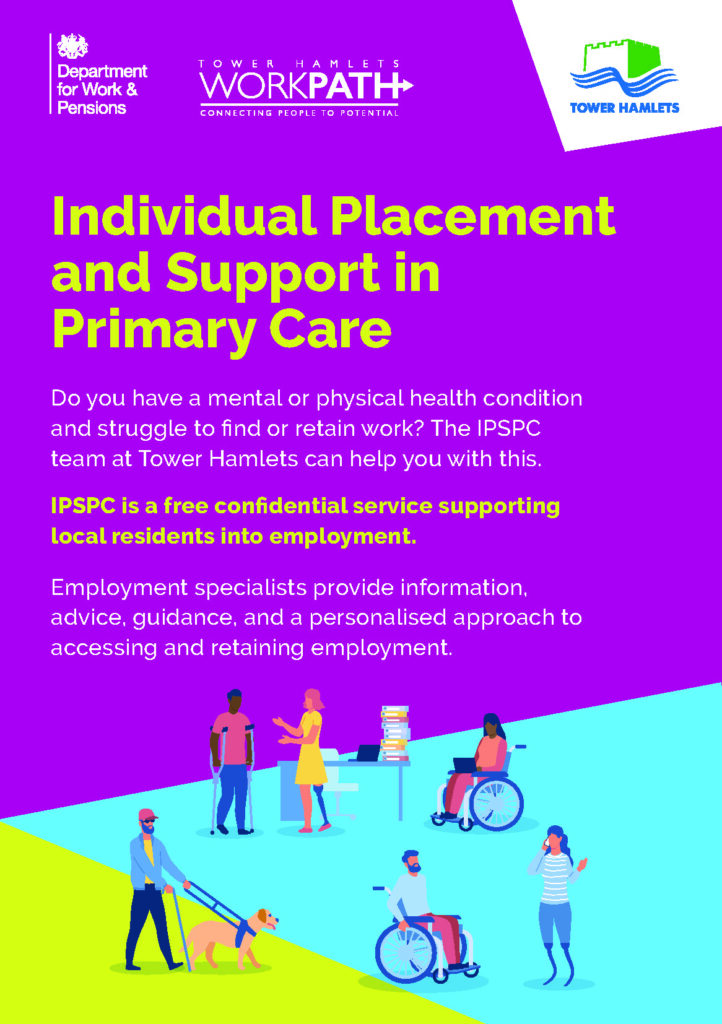
Good mental health and wellbeing starts with you
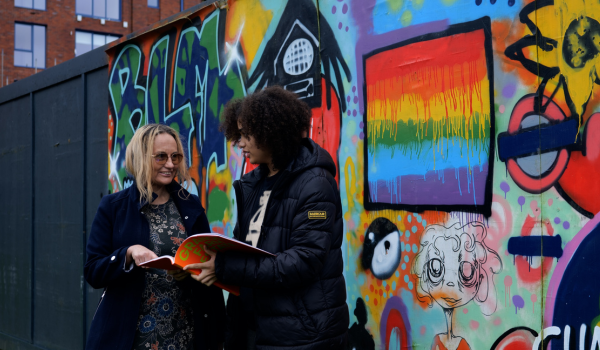
Everyday Londoners are doing what they can to support themselves and others with good mental health – whether checking in with a mate at the school gates, inviting a neighbour over for a cup of tea and a chat, or bonding with a customer at the barber shop.
But conversations around mental health are difficult. The Mayor of London has launched a campaign in support of Londoners who champion positive mental health – in their families, places of work or their communities.
By signing up Londoners will get access to training opportunities, tools and other offers straight to their inbox to help them navigate these conversations with confidence and compassion.
Mental health and wellbeing support in London | London City Hall
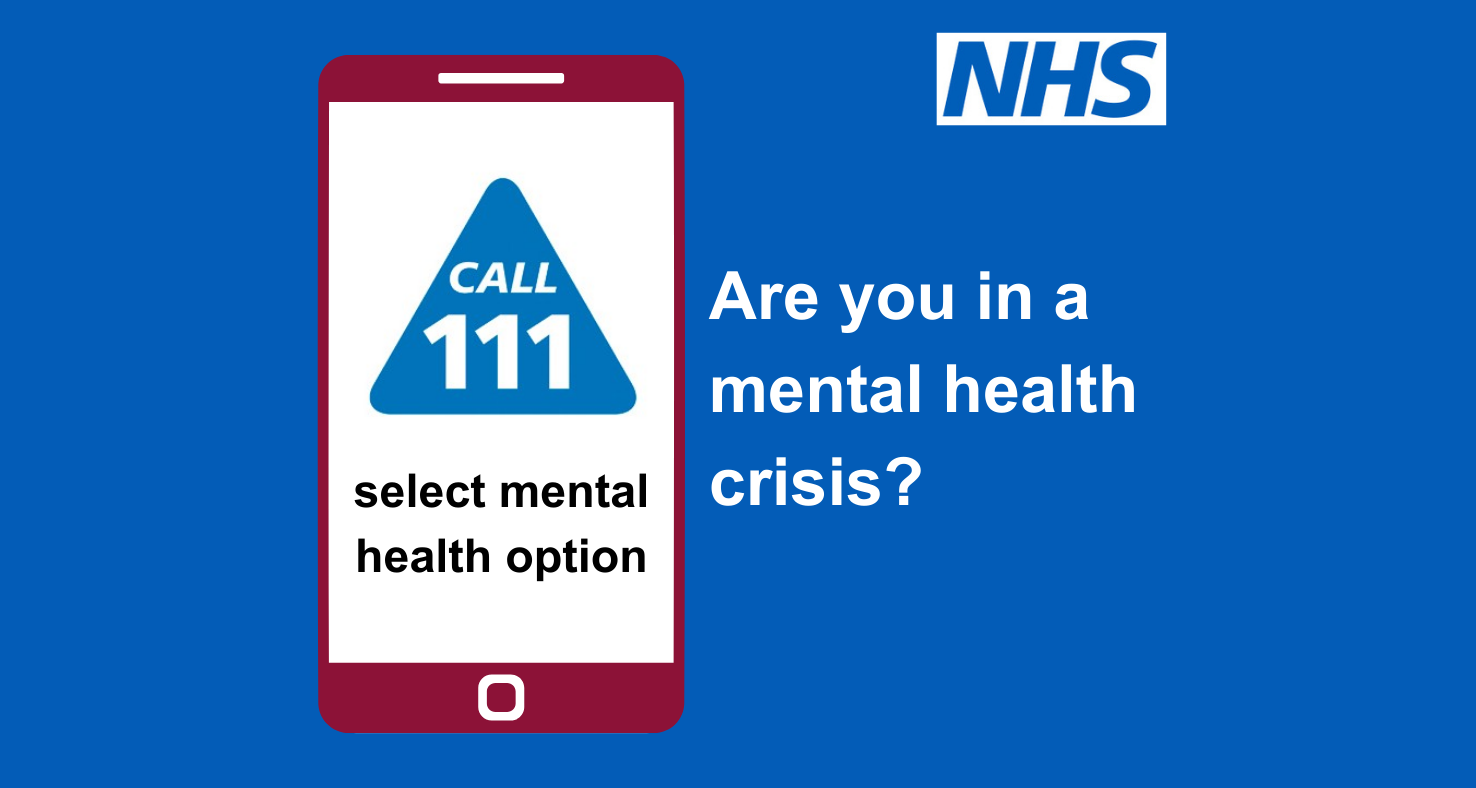
ELFT, along with North East London NHS Foundation Trust (NELFT) and partners across NEL, are working together to ensure that service users experiencing mental health crises can access support via NHS 111, a freephone number that provides urgent health advice 24 hours a day, 7 days a week to people of all ages.
From 2 April 2024, people living in the London Boroughs of the City of London, Hackney, Newham, Tower Hamlets, Waltham Forest, Redbridge, Havering, and Barking and Dagenham will be able to call 111 and select option 2, putting them through to a fully trained and qualified mental health professional team based in ELFT’s crisis hub in Tower Hamlets.
The team has a wide range of skills, including on-the-phone brief psychological support and has access to key services and organisations that can offer mental health support to people in their time of need.
Existing local crisis lines in each borough will still be running. This service will run alongside existing provision.
If service users are known to ELFT or NELFT services, they should continue to contact their service in the ways they had been doing so previously during working hours. Those wishing to contact a mental health professional outside of hours – or those who aren’t previously known to services – should contact 111 and select option 2.
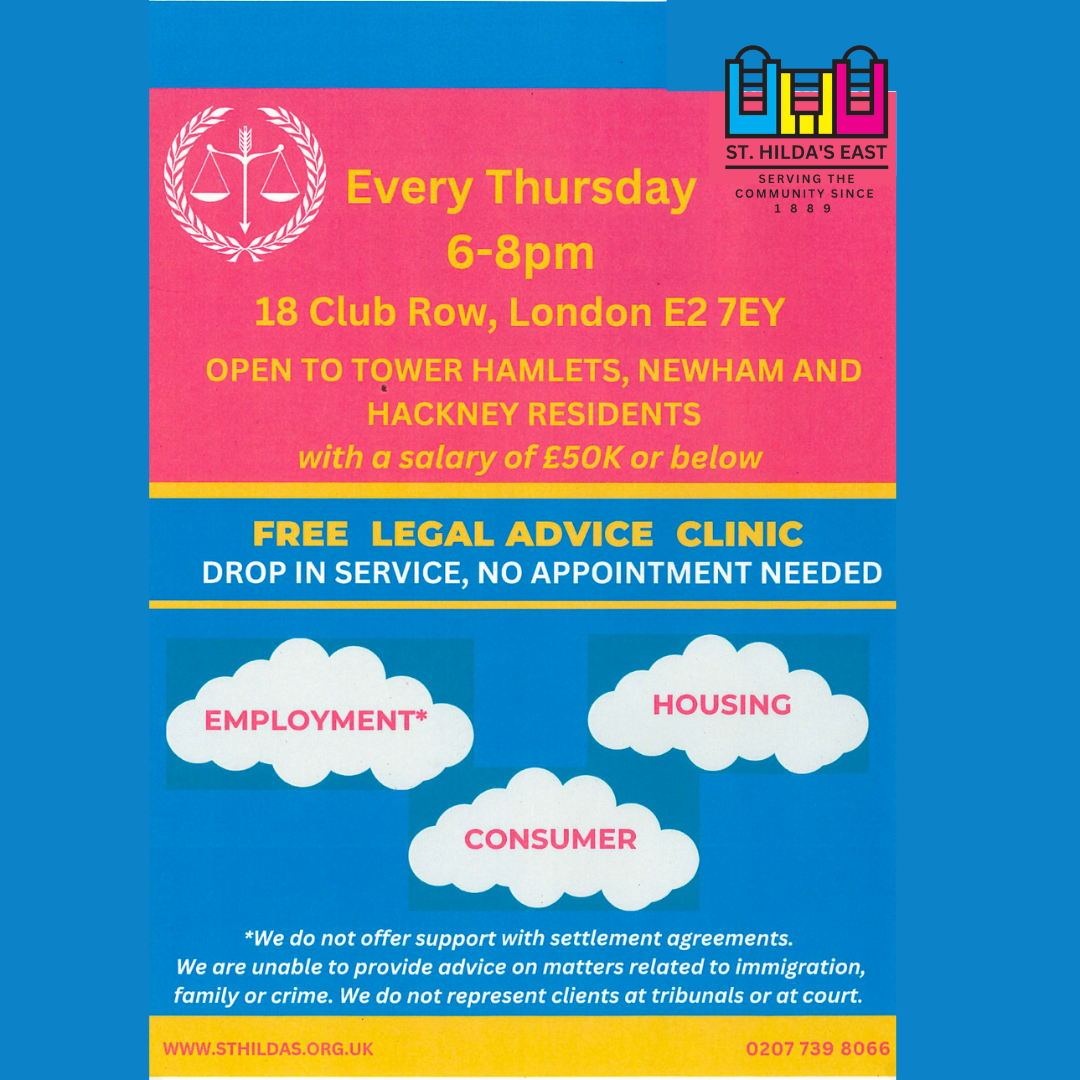
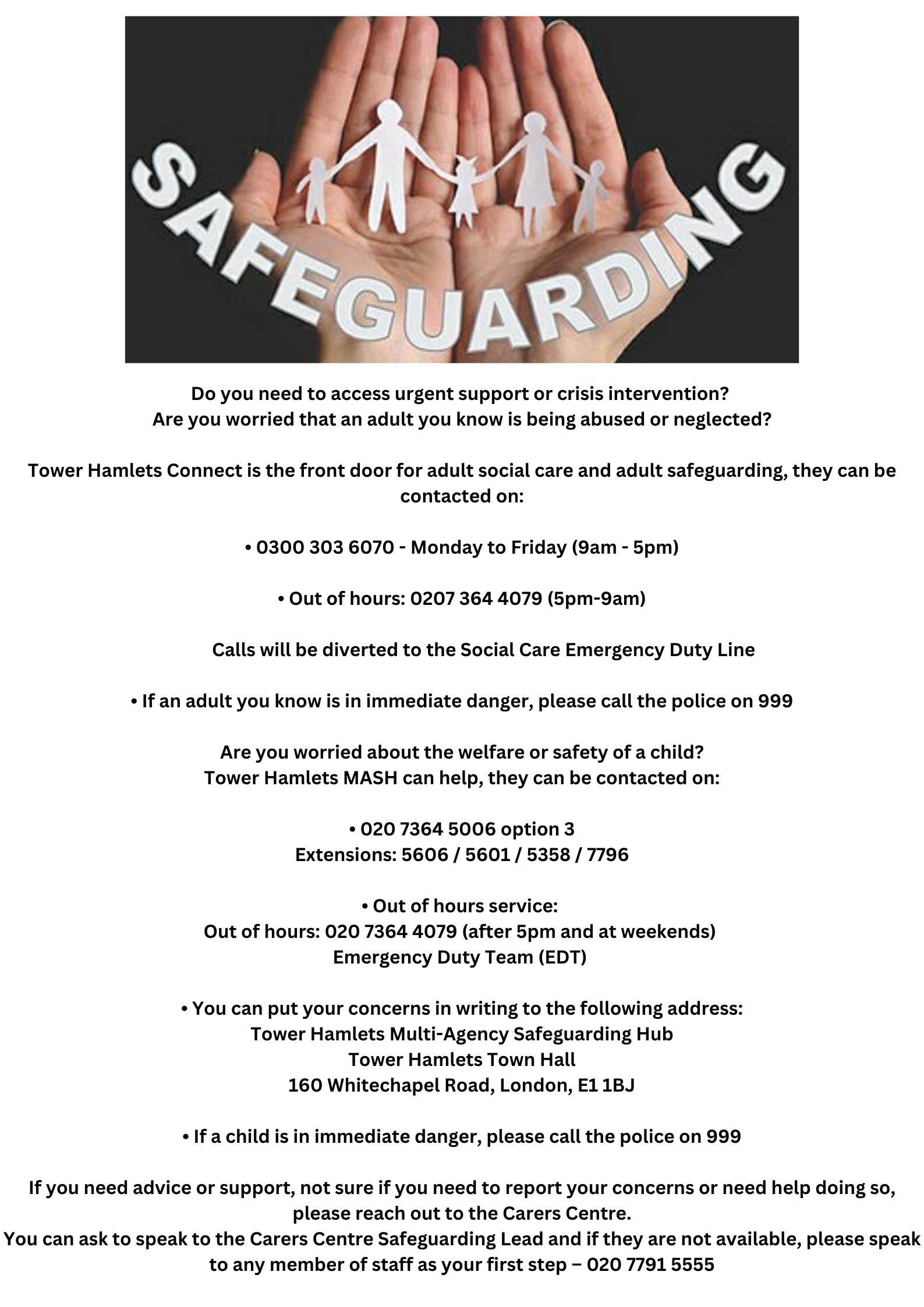
Domestic Abuse & Violence Numbers
Refuge: 24 hours, 7 days a week – Tel: 0808 2000 247

Help for Households Gives clear information about the exceptional payments, energy support and existing support schemes available, so the public know what is available and where they can find help. The homepage brings together over 40 support schemes that the public may be able to access depending on eligibility. Additionally, a range of online tools will help citizens quickly and efficiently check the support they might be eligible for and how to access it.

This is the link to find local councillors. You put you postcode in to find local councillor. They can deal with any housing issue if the carer/cared for is council tenant. They can also help if the carer lives in privately rented property and issue is disrepair.

Food Banks Information
What you need to know
With the cost of living crisis affecting communities nationwide, the London Borough of Tower Hamlets have shared information on accessing your local FOOD Stores and tips on managing your food bills.
Tower Hamlets FOOD Stores
A number of FOOD stores have been set up across the borough, supporting those who are finding it difficult to afford enough food for themselves or their families.
At these FOOD stores, you are able to pick up food valued at £25-£35 in exchange for a £3.50 membership fee. At the same time, support is provided in other areas that you might need help with. This includes help with issues around
- housing
- benefits access
- employment and more.
To find out more or to become a member email thefoodstore@towerhamlets.gov.uk with your name, address, postcode, date of birth and contact number.
Foodbanks
There are a number of food aid organisations available to help you in Tower Hamlets if you are struggling to get food for yourself or your family. Scroll down to see where your closest branch is located. Different food aid services will offer different support.
Types
- Open Access – A food bank that anyone can go to for food.
- Limited Access/referral only – A Food bank that needs someone to refer you into the service. Please contact the organisation for more details.
- School food provision – A food bank or food aid service that specifically works with students and parents who attend the school.
- Hot meals service/Hostel – Provides hot meals or pre-made goods to residents.
Underwood Road Foodbank – (Open Access)
Opening times: Thursday and Friday, 9am – 3pm
St Anne’s Catholic Church, E1 5AW
Contact: 020 7247 7833 or email underwoodroad@rcdow.org.uk from Tuesday to Friday (9am – 3pm)
Ensign Youth Club – (Open Access)
Opening times: Friday 10am – 1pm
Wellclose Sq, E1 8HY
Contact: info@ensign.org.uk
Hague Primary School
Opening times: Monday – Friday 8.40am – 3.40pm
Hague primary school, E2 0BP and E1 5RE
For more information please ask at the school office.
Stewart Headlam Primary School
Opening times: Monday – Friday 8.40am – 3.40pm
Tapp St, London, E1 5RE
For more information please ask at the school office.
Wellington Primary School – Food bank (limited access/by referral only)
School food provision (Pupils and families only)
Opening times: Tuesday 2 – 3pm
Wellington Way, Bow, E3 4NE
Contact: admin@wellington.towerhamlets.sch.uk
St Elizabeth Pop Up Kitchen – School food provision (pupils and families only)
Opening times: 3.40 – 5pm
St Elizabeth Primary School, entrance on Waterloo Gardens, E2 9JY
For more information please visit St Elizabeth School website / Caritas Twitter page.
Bygrove School – School food provision (pupils and families only)
Opening times: Monday – Friday (Term Time Only)
Bygrove street, E14 6DN
For more information please visit the Bygrove School website.
Langdon Park School – School food provision (pupils and families only)
Opening times: Monday – Friday 8am – 4pm
Bright Street, London, E14 0RZ
For more information please ask at the school office.
Dorset Community Food Hub – (Open Access – Hot meals service)
Opening times: Thursday
Ground floor, former Dorset library, E2 8QX
For more information please visit the Dorset Community website.
Olga Primary School Foodbank – School food provision (pupils and families only)
Opening times: Friday 3.20 – 3.45pm
Olga Primary School, E3 5DN
Contact: 020 8981 7127
Edward Gibbons House – (Hostel)
Opening times: 24 hours
1 Parmiter St, E2 9NG
For more information please visit Providence Row website.
Globe Primary School – (Open Access)
Opening times: Friday 12 – 3.15pm
Globe Primary School, E2 0JH
For more information please visit Globe Primary School website.
Food for Aldgate – (Limited access/by referral only)
Opening times: Friday 1 – 3pm
Tonybee Hall, 28 Commercial Street, London, E1 6AB
Contact: Paul.wilson@eastendhomes.net or Twitter @FoodForAldgate.
Womens Inclusive Team – (Limited access/by referral only)
Opening times: Appointment provided after referral
Mayfield House 202 Cambridge Heath Road, E2 9LJ
Contact: 07415 372 664 or email shakilaa@wit.org.uk.
William Davis Food Bank – School food provision (pupils and families only)
Opening times: Friday 2 – 3pm
William Davis School, E2 6ET
Contact: 020 7739 1511
Bow Food Bank – (Open Access)
Opening times: Monday 8am – 12.30pm
Bromley by Bow Centre, St Leonard’s Street, E3 3BT
For more information please visit the Bow Food Bank website.
Bethnal Green Foodbank – (Open Access)
Opening times: Wednesday 2 – 7pm
Raines Foundations School, Approach road, E2 9LY
For more information please visit Bow Food Bank website.
Bow Muslim Cultural Centre – (Open Access)
Opening times: Friday 11am – 3pm
246 Bow Road London, E3 3AP
Contact: info@bowcentralmosque.co.uk
SACC Food Bank – (Limited access/by referral only)
Opening times: Thursday and Friday 10am – 3pm
St Anne’s Catholic Church, E1 5AW
Contact: braziliancp@rcdow.org.uk or 020 7247 7833.
Referrals can be discussed by email or contact number.

| Launch of Somali National Helpline 0800 6102020 |
Better Safe Communities are pleased to inform you of the launch of the first historic Somali National Helpline, sponsored by the local businesses up and down the country and in regards to poor service provisions of UK public services for Somali communities nationally.
The Helpline was founded by Khadra Hersi, a student of London Met University. It is aimed at the Somali community, helping with language barriers, immigration, and mental health issues due to war in their country. The Somali National Helpline are a service that uses professionals to support people overcome issues they are facing. They exist to support individuals with language matters, mental health issues, and beneficiaries to solve their problems. They also provide translating and interpreting services. They are here to support and advocate for many problems faced within the Somali community such as young adults suffering from knife crime, and elderly people who feel isolated and lonely due to language barriers.

Why do you need a Lasting Power of Attorney?
Does the person you look after making their own decisions but want help managing their money? Maybe they can make their own decisions now but want an arrangement in case they can’t in the future. Without a Lasting Power of Attorney (LPA) your family may need to go to Court. This can cause lots of hassle, delay, and expense.
There are 2 types of Lasting Power of Attorney; finances & property matters and decisions about health and care.
Why should you do it now?
- 1 in 3 of us will suffer dementia
- Many of us will retain mental capacity, but will physically struggle to manage our affairs at some point in our life
- Being married or asking your chosen person to act for you is not enough – you need to legally give them the power to help you
- If you leave making your Power of Attorney until you need it, it will be too late.
Carers Centre Partners
The Carers Centre Tower Hamlets is pleased to work in partnership with respected Law firms to provide carers with affordable support with LPA.
Jones Whyte are a Glasgow based multi award winning Solicitor firm and the reigning Law Firm of the Year 2021
- They prepare thousands of Powers of Attorney every year
- Have partnerships with many major national charities
- They offer competitive Power of Attorney fees £349 + vat
Carers Centre staff can refer you, or you can contact them yourself on 0330 175 1234 or email appointments@joneswhyte.co.uk
You can find our more about Jones Whyte here Power of Attorney – Solicitors Glasgow | Jones Whyte Law
Duncan Lewis Solicitors – “We believe in access to justice for the most vulnerable in society and do everything we can to ensure legal advice and support is available for those who need it most”.
Duncan Lewis Solicitors are a national firm with offices locally.
- They prepare thousands of Powers of Attorney every year
- They are available for face-to-face appointments at their local office (1 Kingsland High Street, Dalston, Hackney, London, E8 2JS) or surgeries at the Carers Centre if requested
- They offer competitive Power of Attorney fees £350 + vat
Carers Centre staff can refer you, contact us on 0207 790 1765 or at enquiries@ccth.org.uk
You can find out more about Duncan Lewis here https://www.duncanlewis.co.uk
Most solicitor firms support with LPA and carers are under no obligation to use either firm listed above and are free to seek support from any firm they choose.
What is I do not want to pay for support with LPA?
We also provide workshops and information for those who want to set up an LPA themselves, many people set up LPA without legal support. You can check our Calendar or give us a call for updates on our latest workshops.
You can also see the information links below for information.
Different ways to manage someone’s affairs
Call us on 0207 790 1765 or email enquiries@ccth.org.uk to find out more about LPA.
A carers guide to home fire safety
A new video resource has been launched on the London Fire Brigade website to help carers learn how to keep people that receive care safe from fire.
Sadly, around one third of those here who die or are severely injured by fire are in receipt of some form of care or support. If you are a formal (domiciliary care worker, support worker or clinician) or informal carer (family member, friend or neighbour) and are caring for someone in their own home, this new resource will help you identify fire risks and show you what you can do to reduce them. There is also more information available on the website around fire safety and prevention.
Watch the video >
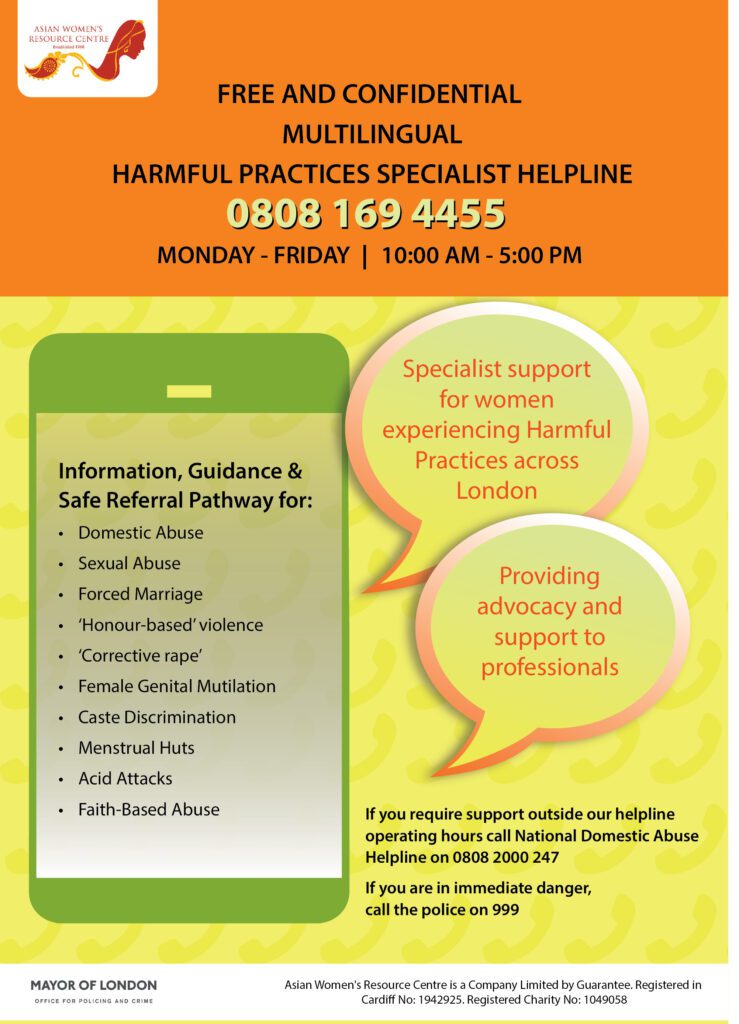

WALKING ALONE? REMEMBER THESE 10 TIPS
1) Plan Your Route
Make sure you plan your route ahead of time. If you are walking in an area you are not familiar with, this can help keep you from getting lost. You will be able to walk with confidence. If you do get lost, don’t wander aimlessly, find a gas station, supermarket, or fast-food restaurant where you can ask for directions.
2) Make Sure Someone Else Knows Your Plans
Don’t go out when it is dark without telling someone, even if you are just taking the dogs out for a walk around your neighbourhood or walking home from a friend’s house nearby. It may seem paranoid, but in fact, knowing someone knows where you are can be reassuring and help you feel safe. If you fall and hurt yourself or run into trouble, and someone knows where you are, they can send help if you don’t arrive at your destination on time.
3) Always Carry Your Phone with You
Always carry your phone, but not for music or to make social calls as your walk. Your phone can be a lifeline if you see something suspicious or worse if something happens to you. Download a safety app on your phone, so you’ll be able to discreetly alert the authorities if you feel threatened or see something suspicious.
4) Avoid Suspicious People and Areas
Areas that are dark, deserted, or out-of-the-way, such as an alley or a parking lot, can be riskier than a well-lit area full of people. Stick to busy, lighted paths, to minimize the risks. Also, walk mainly in familiar places where you are known. That way, if you feel like a suspicious person is following you, you can always duck into a store you know or knock on a neighbour’s door. Avoid empty streets and pathways with thick shrubbery.
5) Keep Your Hands Free
Except for a flashlight and one of the items discussed below, keep your hands free. If you are carrying anything, put it all in one bag or backpack. This will make it easier for you to react if you notice someone following you. In a dangerous situation, carrying too many bags can keep you from moving as quickly as you can if your hands are free or if you only have one bag.
6) Carry a Non-Violent Deterrent
In addition to a flashlight, A whistle will help you alert others and call them to aid you if something is wrong. The loud noise may put off attackers, and they’ll move on to find someone else. Mace or pepper spray can give you enough time to evade a potential attacker, and in a pinch, a flashlight can be used as a weapon. Make sure you know how to use the mace or pepper spray to get its full effect.
7) Wear Reflective Clothing to Prevent Accidents
When it comes to personal safety, it’s not just about suspicious people. Areas with low visibility can be prone to accidents. Reflective clothing allows bikers and cars to see you as you walk along. A flashlight or headlight can also help drivers see you if there are dark stretches of road on your route.
8) Take a Self-Defence Class
When fighting off something as an assault, the element of surprise can work in your favour. If you regularly walk alone, take a self-defence class. You don’t have to become a black belt. In fact, it’s probably better to learn something like Krav Maga, which has been popular for self-defence. The idea is to disable your attacker enough for you to get to safety, and a class focused on self-defence will help give you those survival skills.
9) Remove Any Distractions
Keep your phone in your hand in case you need to hit the panic button on your safety app, but don’t let it distract you. When walking alone at night for exercise, music can be motivating and energizing but also distracting. You may not hear someone driving or walking up behind you. Avoid wearing headphones or talking on your phone as you walk.
10) Trust Your Gut
When walking alone at night, trust your gut. If you feel like an area or situation may be dangerous, don’t wait around to find out. Stop and scan your surroundings if you think someone is following you. If you are being followed, walk as quickly as you can to a well-lit public place. You can wait until you feel safe, or call a friend, a taxi, or an Uber to help you get safely get home at night.
Following these personal safety tips will help keep you stay safe when walking alone. Always be aware of where you are and alert to suspicious activity.
